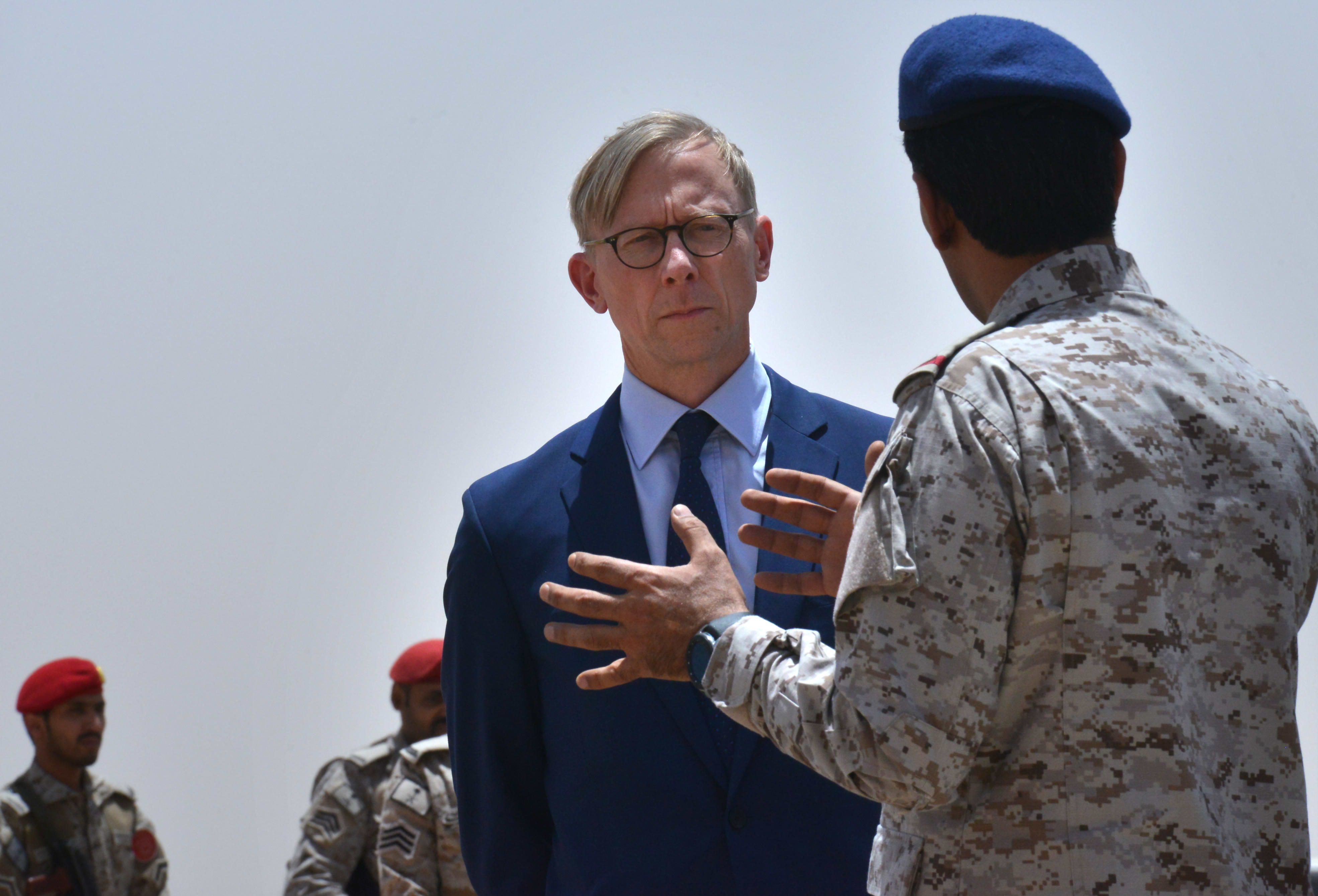Trump envoy says the downing of a US drone leaves Iran 'even more diplomatically isolated' - 3 minutes read

U.S. special representative to Iran, Brian Hook, told CNBC on Saturday that the downing of an unmanned U.S. drone leaves the Islamic Republic "even more diplomatically isolated."
His comments come after a series of rapid escalations between Washington and Tehran.
President Donald Trump reportedly approved military strikes against the Islamic Republic late Thursday in retaliation for the downing of an unmanned American drone, before abruptly reversing his decision.
Brian Hook (L), the US special representative on Iran, listens to a member of the Saudi military forces at an army base in al-Kharj, south of the Saudi capital Riyadh, on June 21, 2019.
FAYEZ NURELDINE | AFP | Getty Images
The U.S. president has since said in an interview with NBC News that he does not want war with Iran but, if it comes, there will be "obliteration like you've never seen before. "
"It certainly was a mistake for the Iranians to do that because I think it has caused them to be even more diplomatically isolated than they were after the Fujairah attacks, " U.S. envoy for Iran Brian Hook told CNBC's Hadley Gamble in Abu Dhabi on Saturday.
"We have now had over a half dozen attacks that have been launched by the Iranian regime because they don't like the economic pressure that the United States has put into place," he added.
Trump said the U.S. was "cocked and loaded to retaliate" against Iran on Thursday, but he changed his mind 10 minutes before planned strikes.
Attacks had been planned against three sites in response to the downing of a U.S. Global Hawk drone.
U.S. officials said the drone was flying over international waters in the Strait of Hormuz — the world's busiest transit lane for seaborne oil shipments — but Iran claims it was on a spy mission over international waters.
Trump said he called off the strikes after being told 150 people would die.
Tensions between the U.S. and Iran have spiked since May last year when Trump withdrew from the 2015 nuclear deal and reinstated sweeping sanctions on the country.
The U.S. has also bolstered its military presence in the Middle East and blacklisted Iran's Revolutionary Guard as a terrorist organization.
When asked to clarify whether he believed Trump was right to say the downing of a drone may have been unintentional, Hook replied: "The Iranian regime likes to keep it very opaque. And its often the case that the left hand doesn't know what the right is doing."
"But, we know that we have to judge Iran by what it does and not what it intends to do," Hook said, before adding the White House's maximum pressure strategy had denied the Islamic Republic access to tens of billions of dollars of revenue which it would otherwise have spent "destabilizing the Middle East."
Open to talks
On Friday, Hook told reporters at a news conference in Riyadh, Saudi Arabia that Iran did not have the right to respond to U.S. diplomacy with military force.
He added it was "important to do everything" possible to de-escalate tensions with Tehran.
In response to Hook's comments, Iranian Foreign Ministry spokesperson Abbas Mousavi said the country would react to diplomacy with diplomacy and "to war with firm defense."
The U.S. president has said he remains open to negotiations with Iran, but Supreme Leader Ayatollah Ali Khamenei categorically ruled out talks with the Trump administration last week.